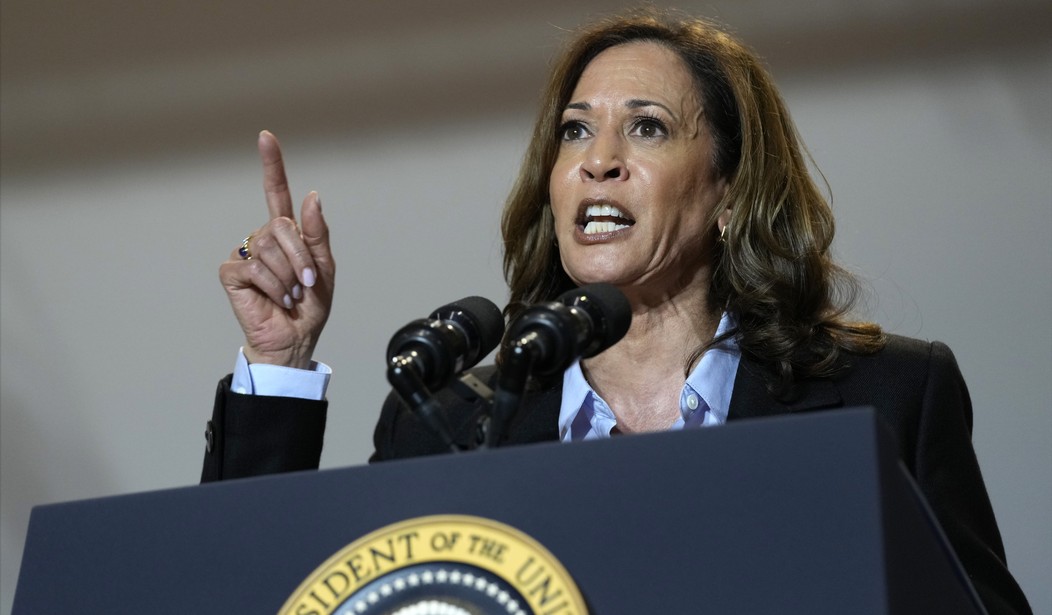In 2019, Vice President Kamala Harris told CNN's Jake Tapper that social media companies "are directly speaking to millions and millions of people without any level of oversight or regulation, and it has to stop."
Does it?
Every two-bit authoritarian in history has justified censoring its citizens as a way of protecting them from the menace of disinformation.
But social media sites, contrary to the reliably illiberal Harris, don't "directly speak" to anyone. Millions of individuals interact with and speak to millions of other individuals. That's what grinds the modern left's gears: unsupervised conversations.
Take the Brazilian Supreme Court panel, which unanimously upheld one of its justices' decision to shut down Elon Musk's X over alleged "misinformation" fears.
We must assume that the Democratic Party's presidential nominee, who once promised to ban guns via an executive order, agrees with Justice Alexandre de Moraes's decision to shut down a social media platform for refusing to bend to the state's demands of censorship.
The Associated Press reports that the Brazilian high court's decision "undermines Musk and his supporters' effort to cast Justice Alexandre de Moraes as an authoritarian renegade intent on censoring political speech in Brazil."
Really? It seems that the state shuttering one of the popular social media sites unmistakably qualifies as a ban on political speech, whether one person is responsible or an entire government.
And make no mistake, it is politically motivated. "Just because the guy has a lot of money doesn't mean he can disrespect this (country)," Brazilian President Luiz Inacio Lula da Silva argued. Well, the South American nation's constitution, like ours, apparently protects free expression -- making no distinction between the poor and rich: "Any and all censorship of a political, ideological, and artistic nature is prohibited." You can tell Brazil is super serious about the matter because the bullet point appears in Chapter V, Article 220, or page 148 in my translated copy.
Recommended
Let's concede, however, that de Moraes isn't any kind of renegade, merely a conventional Brazilian autocrat. In the same way, Musk isn't merely another billionaire but a tech CEO who generally views free expression as a neutral principle.
I suppose the best evidence for this claim is that even as Brazil bans Musk's site, he allows the far-left Lula to have an account on X with 9 million followers.
In Europe, free expression is also ostensibly protected by the constitution. Well, the right is contingent on "national security," "territorial disorder," "crime," "health" and other highly malleable issues that ultimately allow police officers in the United Kingdom and Germany to show up at your door and throw you in prison for offensive posts.
As the late Supreme Court Justice Antonin Scalia once pointed out, "Every Banana Republic has a Bill of Rights." The question is: How close are we to being one?
Uncomfortably close is the answer.
Meta CEO Mark Zuckerberg recently admitted that senior Biden administration officials "repeatedly pressured" Facebook to "censor" COVID-19 content, including "humor and satire," during the pandemic. Zuckerberg vowed that he would never let his company be pushed around again. I'm sorry if we don't take him at his word.
Tech companies enjoy unencumbered free association rights and are free to keep or kick off anyone they desire from their platform, as they should. Before Musk purchased Twitter, now known as X, contemporary left-wingers celebrated the independence of social media platforms. "If you don't like it, build your own Twitter," they would say.
OK. But when corporations spend tens of millions each year in Washington rent-seeking and lobbying for favorable regulations, take marching orders from state officials and giant federal bureaucracies on the contours of permissible speech, we have a big problem.
If presidential candidates truly cared about "democracy," they'd advocate anti-cronyism laws and forbid government officials from interfering with or pressuring private entities regarding speech.
But, these days, many Americans no longer view free expression as a neutral, liberal virtue worth defending. Foremost among them, apparently, is the Democratic presidential ticket.
David Harsanyi is a senior editor at The Federalist. Harsanyi is a nationally syndicated columnist and author of five books -- the most recent "Eurotrash: Why America Must Reject the Failed Ideas of a Dying Continent." His work has appeared in National Review, the Wall Street Journal, Washington Post, Reason, New York Post, and numerous other publications. Follow him on Twitter @davidharsanyi.
























Join the conversation as a VIP Member